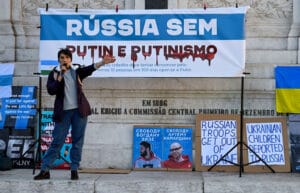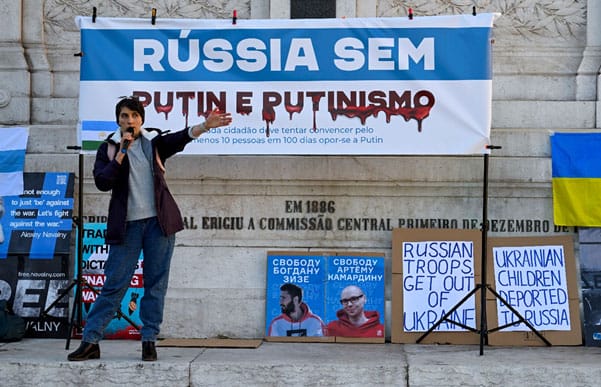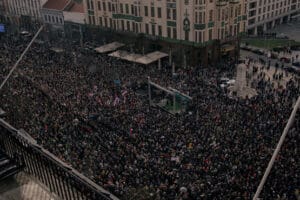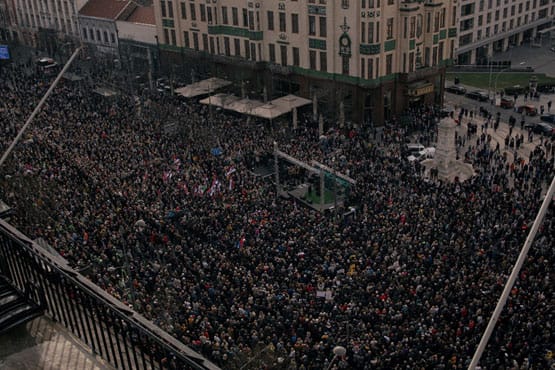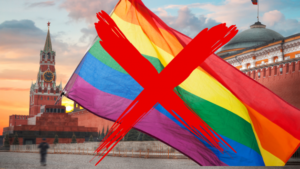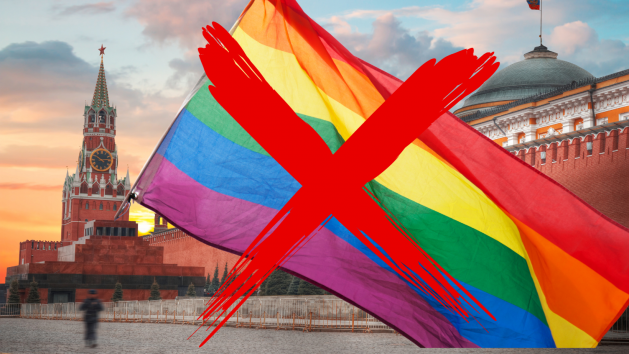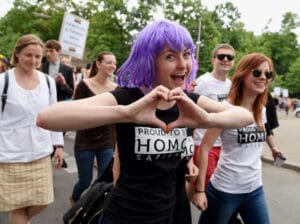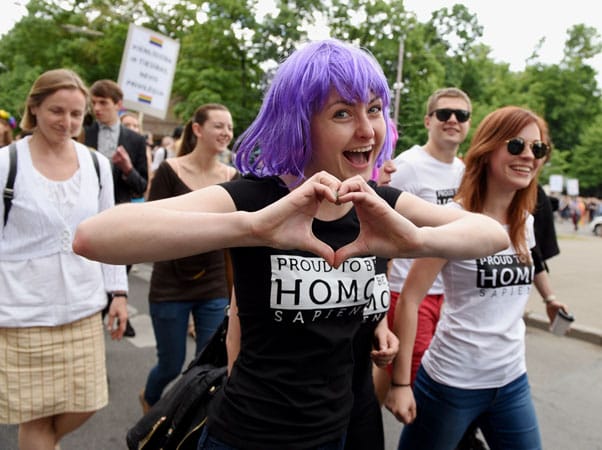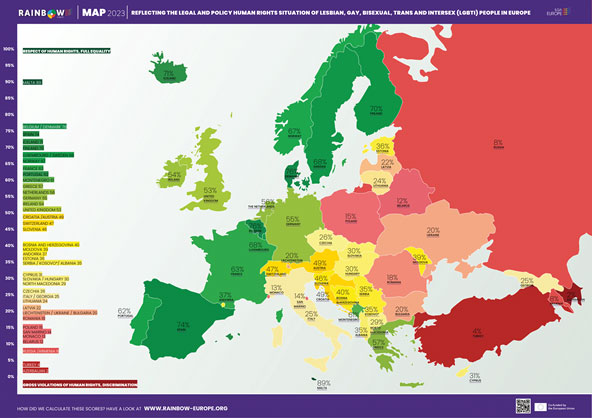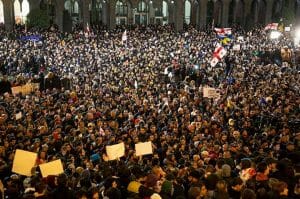
Civil Society, Crime & Justice, Europe, Featured, Gender, Gender Identity, Headlines, Human Rights, LGBTQ, Religion, TerraViva United Nations
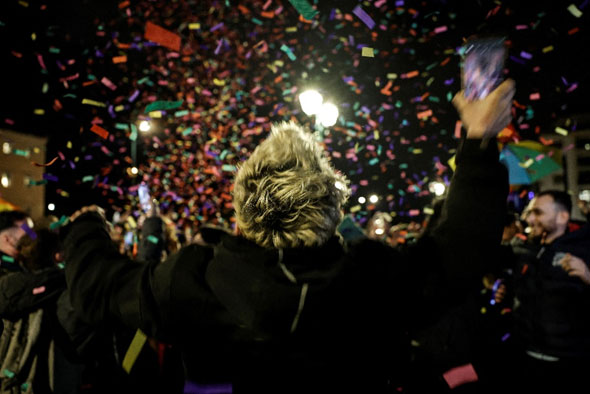
Credit: Louisa Gouliamaki/Reuters via Gallo Images
– After almost two decades of civil society campaigning, Greece’s parliament has passed a law enabling same-sex couples to marry and adopt children. It’s the first majority-Orthodox Christian country to realise marriage equality.
Equal marriage is now recognised in 36 countries, with Estonia last year becoming the first post-Soviet state to join the ranks. These notable firsts have however been accompanied by regression elsewhere, including in the country with the world’s biggest Orthodox Christian population, Russia.
SAME-SEX MARRIAGE AROUND THE WORLD
A long campaign
Debate on the rights of Greek same-sex couples dates back to 2006. That year and again in 2008, the centre-left PASOK party submitted bills to recognise unmarried couples, including same-sex ones. Neither made it through parliament, and a cohabitation law was eventually passed that didn’t include same-sex couples.
In 2008, LGBTQI+ rights activists exploited a loophole in a law that didn’t specify that marriage must involve a man and a woman. Despite instant backlash and legal threats, the mayor of the island of Tilos, a gay tourist destination, held a civil wedding ceremony for two same-sex couples. Courts soon annulled these weddings, but they helped put the issue on the agenda.
In the run-up to the 2009 election, the Lesbian and Gay Community of Greece sent candidates a questionnaire on LGBTQI+ rights. PASOK, which won the election, said it supported same-sex registered partnerships. But in office it dragged its heels.
LGBTQI+ activists took to regional and international human rights systems. They submitted shadow reports to the UN Human Rights Council’s review of Greece’s human rights record. In 2009, four gay couples brought two cases to the European Court of Human Rights (ECHR), stating that the restriction of civil unions to heterosexual couples amounted to unjustified discrimination.
In November 2013, the ECHR ruled that there was indeed discrimination, ordering the state to provide compensation. Within days, the PASOK-led government announced it would introduce a bill to extend civil unions to same-sex couples.
But time dragged. A year on, the government again said it was considering the change, but soon after, parliament was dissolved and snap elections were called for early 2015. Amid public anger at economic austerity measures imposed in response to Greece’s debt crisis, left-wing party Syriza won power.
Political change
The pace quickened under the Syriza-led government, and after a long and contentious December 2015 parliamentary debate, same-sex couples gained civil partnership rights. They still weren’t able to adopt or exercise parental rights over non-biological children, but the change was a vital first step. A year on, parliament further amended the law to extend some of the same rights as marriage, including labour rights.
LGBTQI+ rights activists made more gains during Syriza’s four years in power. In 2017, parliament passed a gender identity law enabling people to change gender on official documents without undergoing any medical procedure and allowing trans people to affirm their gender from 15 years onwards. Almost the entire political opposition voted against, including Kyriakos Mitsotakis, leader of the centre-right New Democracy party and current prime minister.
In June 2019, Prime Minister Alexis Tsipras promised his government would legalise same-sex marriage if it won the upcoming election. But he was defeated by New Democracy and its bill was shelved. It renewed its promise ahead of the 2023 election, but again New Democracy won.
In a surprise move, an unlikely champion introduced a same-sex marriage bill in January 2024: Prime Minister Mitsotakis, having consolidated his hold over the political right, now sought to make inroads into socially progressive territory.
On 15 February, several prominent New Democracy parliamentarians abstained or voted against the bill but opposition parties on the left compensated. Syriza lawmakers voted overwhelmingly for.
The religious factor
But powerful forces still oppose equality. According to a 2018 survey, Greece is Europe’s fourth most religious country. Around half of adults consider themselves ‘highly religious’ and 59 per cent say they believe in God with ‘absolute certainty’. Up to 98 per cent identify as Greek Orthodox Christians. For many, belonging to the church goes beyond religion – it’s bound up in Greek identity.
The church has fiercely resisted every victory of the women’s and LGBTQI+ rights movements. It’s been particularly belligerent towards the gender identity law. Church authorities condemned it as ‘a satanic deed’ and shared the same conspiracy theories as far-right groups.
With public opinion evenly divided, the debate on same-sex marriage was deeply polarising. Parliamentary debates saw a barrage of abusive language and hate speech. Far-right politicians claimed the bill was ‘anti-Christian’ and warned it would enable paedophiles. Church representatives insisted homosexuality was a ‘mortal sin’. The church insisted the bill would destroy the family. Priests propagated disinformation and threatened excommunication.
What – and where – next
As Equaldex’s Equality Index shows, the new law is way ahead of prevailing public attitudes. Activists will need to do much more work to shift public opinion to prevent regression and keep moving forward. But they’re optimistic this latest victory will help further normalise the presence of LGBTQI+ people and bring more social acceptance of diversity.
It matters too outside Greece, which is ahead of the curve among Orthodox-majority states – and could offer an example to follow.
Belarus, Russia and Moldova are the Orthodox-majority countries with the most hostile environments for LGBTQI+ people. Belarus and Russia have closed civic space, making it next to impossible to advocate for rights, and Russia has further intensified its repression of LGBTQI+ people as a matter of national identity during its full-scale invasion of Ukraine.
But Moldova, along with several other of Greece’s Orthodox-majority neighbours – Bulgaria, Montenegro and Romania – have relatively enabling civic space and active LGBTQI+ movements seeking change.
Activists in Greece will keep pushing for social change to match legal progress. And activists in neighbouring states will keep campaigning, knowing that, sustained advocacy can pay off even in hostile contexts. They’ll keep trying to force open political windows of opportunity so decades-sought change can finally materialise.
Inés M. Pousadela is CIVICUS Senior Research Specialist, co-director and writer for CIVICUS Lens and co-author of the State of Civil Society Report.

